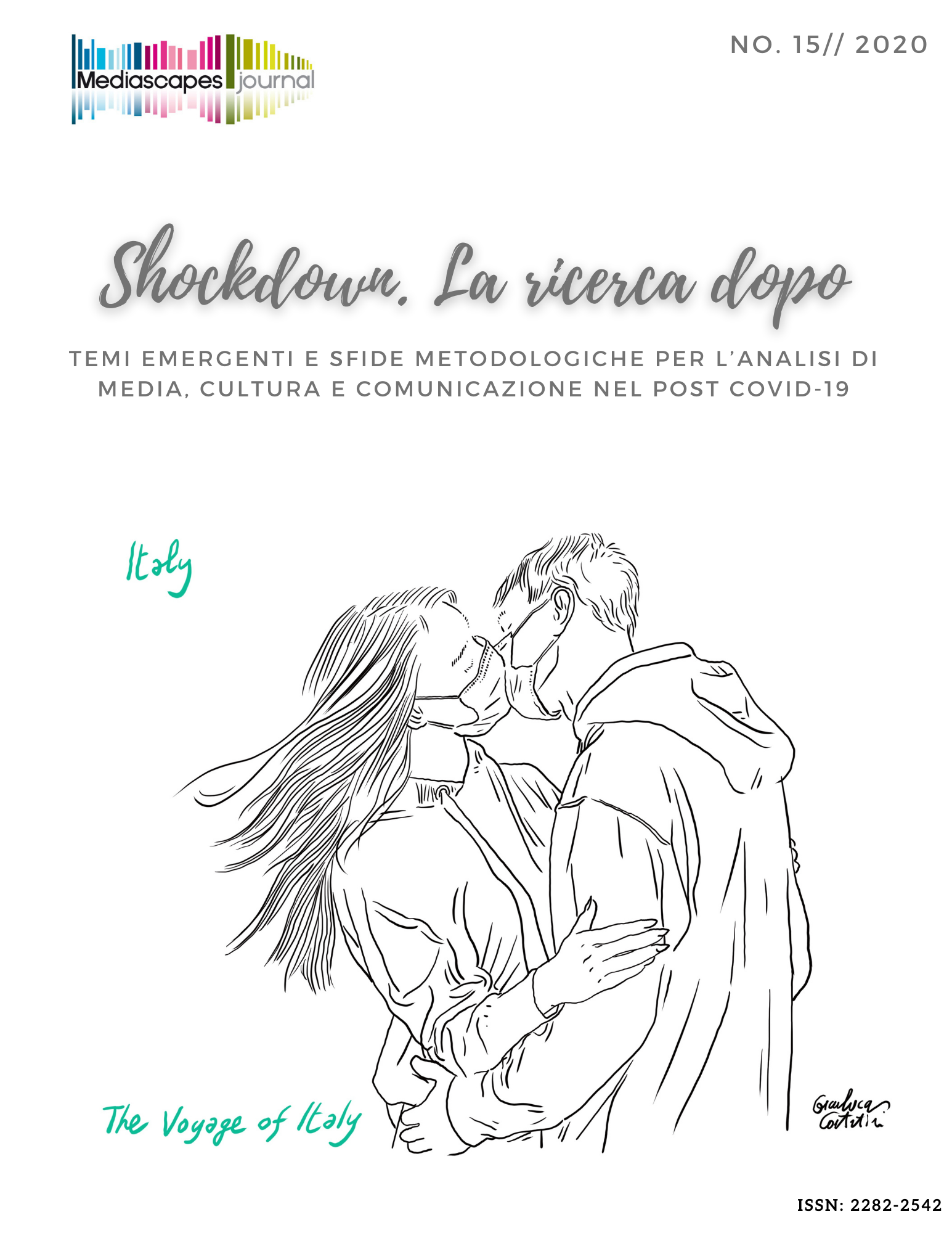La comunicazione pubblica della salute tra infodemia e fake news: il ruolo della pagina Facebook del Ministero della Salute nella sfida social al Covid-19
Parole chiave:
comunicazione della salute, infodemia, fake news, comunicazione istituzionale, Covid-19Abstract
The year 2020 will be remembered as the year of Covid-19 pandemic, but also as the year of the infodemic, a condition of overabundance of information, some accurate and some not, that makes it hard for people to find trustworthy sources and reliable guidance. The state of uncertainty determined by an unknown virus has fueled citizens’ need for reassurance, and therefore for knowledge and information. Italy has faced the health and information epidemic in a context of general mistrust in institutions and dealing with a cacophony of discordant voices.
In this problematic context, the Italian Ministry of Health has taken steps to assume a key role from a communicative point of view to respond to the growing requests of citizens and the media, and stem the myriad of inaccurate information circulating online. Given the relevance of social media for the circulation of false news and the popularity of Facebook in Italy, the Ministry's Facebook page has played a central role in communicative practices for managing the infodemic.
Using both qualitative and quantitative analysis, in this article we analyze all the posts (N = 459) published on the official Facebook page of the Italian Ministry of Health during the emergency phase, from 30 January to May 3, 2020, the day of the end of the country's lockdown and start of the so-called phase 2.
Results show that during the pandemic the Ministry's Facebook page has turned into a thematic page almost completely dedicated to dealing with the emergency, with 93,5% of the messages focused on Covid-19. The fight against fake news has also been highly relevant, with 12,3% of the messages on the topic. Infographics have been the most used type of visual (58%) to counteract fake news. We identified two types of infographic aimed 1) at countering misinformation by tackling and debunking specific fake news, and 2) at raising awareness of the public problem and of the importance of using reliable sources of information. Messages containing infographics reached a significantly higher engagement than other types of messages, showing up as the most effective format to reach the public on Facebook during the pandemic. Starting from the empirical evidence of this study, implications for improving public health communication strategies and practices in forthcoming emergencies are critically discussed##submission.downloads##
Pubblicato
Come citare
Fascicolo
Sezione
Licenza
Gli autori che pubblicano su questa rivista accettano le seguenti condizioni:
- Gli autori mantengono i diritti sulla loro opera e cedono alla rivista il diritto di prima pubblicazione dell'opera, contemporaneamente licenziata sotto una Licenza Creative Commons - Attribuzione che permette ad altri di condividere l'opera indicando la paternità intellettuale e la prima pubblicazione su questa rivista.
- Gli autori possono aderire ad altri accordi di licenza non esclusiva per la distribuzione della versione dell'opera pubblicata (es. depositarla in un archivio istituzionale o pubblicarla in una monografia), a patto di indicare che la prima pubblicazione è avvenuta su questa rivista.
- Gli autori possono diffondere la loro opera online (es. in repository istituzionali o nel loro sito web) prima e durante il processo di submission, poiché può portare a scambi produttivi e aumentare le citazioni dell'opera pubblicata (Vedi The Effect of Open Access).


